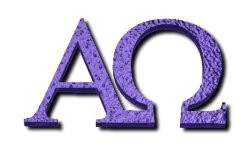
G D His Existence And His Nature -Rev. R. Garigou-Lagrange, O.P.
FIRST PROOF: FROM MOTION
That there is motion in the world is a certainty attested by experience. There is not merely local motion, but there are also substantial changes, qualitative movements according to the increasing or decreasing intensity of a quality, and even spiritual movements of the intellect and will.
Ia, q. 2, a. 3, ad 2um; q. 79, a. 4; q. 82, a. 4, ad 3um; q. 105, a. 2, 3, 4, 5; Ia IIae, q. 9, a. 4.
Now, everything which is in motion is moved by another. This principle is a necessary and absolutely universal one. Motion, in fact, is the transition from potentiality to act, from indetermination to determination. Thus a body which was cold becomes warm, an inert body is moved locally. Now, nothing can be reduced from potentiality to act, except by a being which is already in act, and it is impossible for a being to be at one and the same time and in identically the same sense, both in potentiality and in act. In living beings, one part is moved by another; but as this other part is itself set in motion by a movement of a different order, this can only be the result of the influence exerted upon it by a mover of a higher order. Therefore, every being that is in motion, body, soul, or spirit, is moved by another.
Cfr. Summa Theol., Ia, q. 105, a. 5, where St. Thomas considers in inverse order how the prime mover is related to all motion and created activity.
Moreover, there cannot be an infinite series of movers essentially and actually subordinated one to another. It is not a question here of a regressive series of movers, such as we find amongst generators in a series of animals generated; for these movers are but accidentally subordinated to one another, and none of them exerts an actual influence upon the other. Also, as St. Thomas says,
Ia, q. 46, a. 2, ad 7um.
"it is not impossible for a man to be generated by a man ab aeterno, that is to say, without there having been a first in this series of human generations." But it is impossible for motion to find its completely sufficient reason or its first cause in a series of past movers, even if the series were ab aeterno, since each of these movers was himself set in motion by another. If this series is eternal, or had no beginning, it is eternally insufficient, for it has not in itself a sufficient reason for existing.
Therefore, we are dealing with movers which actually exert an influence upon one another and which are essentially subordinated one to the other. Thus the moon attracts the bodies which surround it, and is itself attracted by the earth; the earth in turn is attracted by the sun, and the sun has some other center of attraction. We cannot go on indefinitely in this ascending series. If, indeed, each of these movers essentially subordinated to one another, receives an impetus which it transmits to another, in such a manner that there is no prime mover which is the source of motion, which is itself not set in motion, then there never will be any motion. Thus a clock will not go without a spring, and multiplying the number of its movements ad infinitum would not give to it a principle of movement.
We must, therefore, conclude that there is a prime mover, who is not himself set in motion by a mover of a higher order, and whom we call God. This supreme mover is immobile, not with an immobility of an inferior kind, or the inertia of passive potency, which implies far more of imperfection than motion itself; but with an immobility of a nobler kind, namely, that of act, which has no need of being premoved or conditioned so that it may act. In other words, we must admit the existence of a prime mover, who acts by himself, who has never been reduced from potentiality to act, but who is his own activity, his own action,
Ia, q. 3, a. 6; q. 9, a. l; q. 25, a. 1, ad 3um; q. 54, a. 1.
and consequently, his very own being, for action presupposes being, and the mode of action follows the mode of being.
Ia, q. 25, a. 2.
The prime and most universal mover of bodies and of spirits must, therefore, be pure act, without any admixture of potentiality capable of further determination, and consequently free from all imperfection, both with regard to action and with regard to being. In other words, it (or rather he) must be the self-subsisting Being.
Ia, q. 3, a. 4.
And so it is evident that this prime and immobile mover is transcendental, being by his very nature infinitely above the world of corporeal and incorporeal beings, which he moves incessantly.
Ia, q. 3, a. 8.
This argument refutes the theory of absolute Evolutionism, according to which becoming, or the evolution of phenomena, is the principle of all things. This is impossible, since the sufficient reason or cause of becoming cannot be found in this process itself, but becoming involves the presence of an additional element, which calls for a higher cause, otherwise we should have to say that the greater comes from the less, being from nothingness, without any cause. This would not only be a greater mystery than creation, but a manifest absurdity, which, as Hegel admits, must be acknowledged by all who believe in a progressive evolution, in the course of which the more perfect is always produced by the less perfect.

 Support Site Improvements
Support Site Improvements